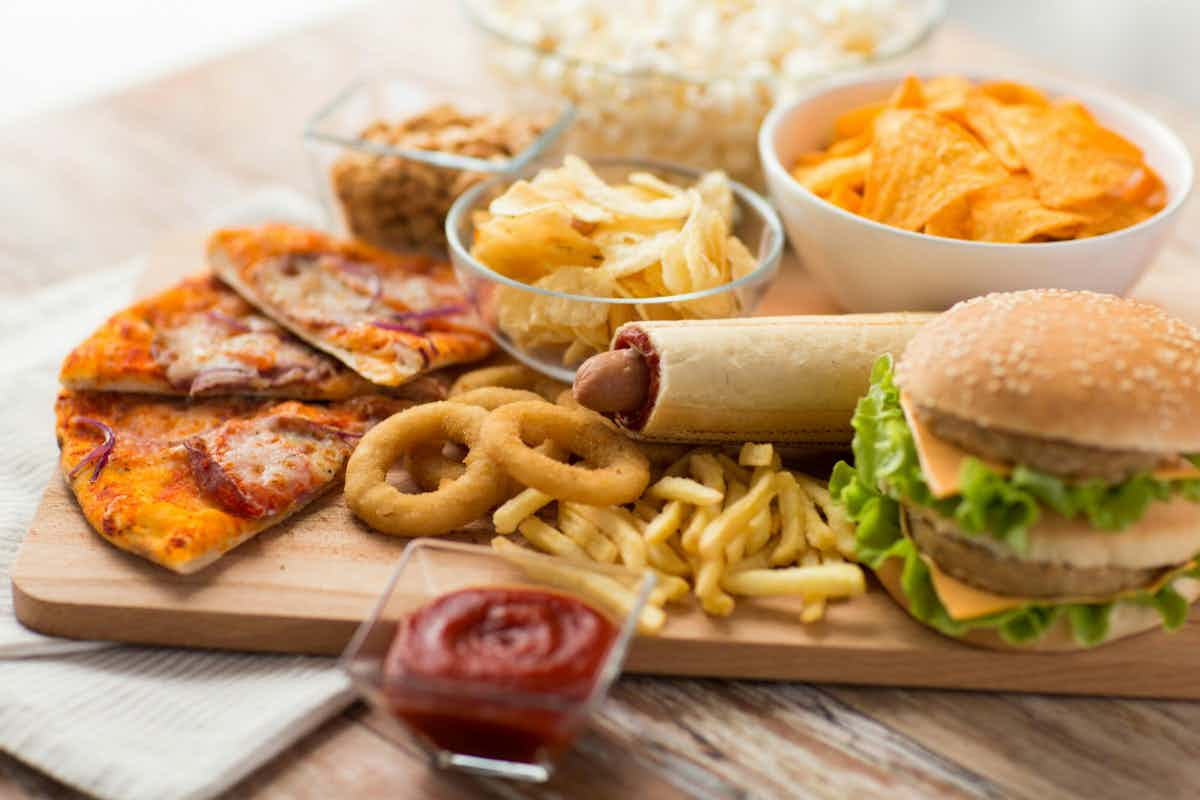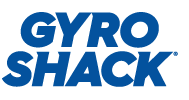
You’ve always dreamed of owning your own business, but starting from scratch seems overwhelming. You want something reliable, with a proven track record, and a concept that fits the growing demand for healthier food options.
QSR investments offer a way to own a business that combines the stability of an established brand with the freedom to make it your own. Among the many options, one name stands out: Gyro Shack. With strong support, a simple yet appealing menu, and the rising popularity of Greek cuisine, Gyro Shack is a top choice in the QSR market.
In this guide, we’ll explore why investing in fast-food franchises is smart and why Gyro Shack could be your best option. Ready to start your journey to owning a successful franchise? Let’s dig in!
Unlocking the Profit Potential of QSR Investments
Quick Service Restaurants, or QSRs, are all about speed, convenience, and affordability. These places offer fast food options that cater to busy folks who need a quick bite. Unlike traditional sit-down restaurants, QSRs focus on fast service.
You’ll often find:
- Drive-thru restaurants
- Takeaway options
- Minimal table service
Investing in QSRs means putting your money into a business model designed for high turnover and streamlined operations. They include a wide range of restaurant types, from your classic burger joints to more niche markets like Mediterranean or Greek food franchises.
Any restaurant that serves quick meals with efficient service falls under the QSR umbrella.
Why QSRs are Profitable: Market Trends and Growth
For starters, the fast food market is huge and keeps growing. People lead busy lives and need convenient meal options. The constant demand makes QSRs a lucrative field for investors.
One big QSR market trend is the move towards a healthy franchise. More people are looking for nutritious and fresh options, even when they’re grabbing something quick.
QSRs are also using tech to make the customer experience better. Think online ordering, mobile apps, and self-service kiosks. These tools make operations smoother and reduce wait times.
Many QSRs are adopting eco-friendly practices, like using sustainable packaging and sourcing local ingredients. It attracts environmentally conscious customers and builds a positive brand image.
In terms of growth, the demand for fast, affordable meals is always high. Fast food is a staple in many diets around the world, ensuring a steady stream of customers.
The franchise model helps with rapid expansion since it requires less capital than starting a new business from scratch. Franchisees benefit from the brand’s reputation and support system, which lowers the risks.
QSRs often have lower operating costs compared to full-service restaurants. They focus on quick service and high turnover, which means higher profit margins. With the right location and good management, a QSR can quickly become a profitable venture.
Your Guide to Fast Food Franchise Opportunities
When diving into the world of fast food franchises, research is your best friend. Start by identifying what kind of cuisine and service style appeal to you.
Are you drawn to classic burgers and fries, or does the thought of serving up fresh Mediterranean dishes excite you more?
Once you have a type in mind, dig into the specifics of various franchises. Look at their business models, initial investment costs, and ongoing fees.
Franchise directories and business review websites are great resources. They provide insights into the performance and reputation of different franchises. You can also attend franchise expos and trade shows.
Evaluating Fastest Growing Restaurants
The fast food industry is vast, with some franchises growing faster than others. Evaluating which ones are on the rise can help you make a smart investment.
Pay attention to consumer trends as well. For example, there’s a growing demand for healthier options in fast food. Franchises that cater to this demand, like those offering fresh salads or organic ingredients, are seeing significant growth.
The Appeal of Mediterranean Food and Greek Food Franchises
Mediterranean and Greek food franchises are gaining popularity for several reasons. First, they offer a healthier alternative to traditional fast food. Dishes like gyros, hummus, and fresh salads are packed with nutrients and appeal to health-conscious consumers.
Second, Mediterranean cuisine is known for its bold flavors and fresh ingredients. Greek food, in particular, offers a unique blend of savory and tangy flavors that can stand out in the fast food market.
Lastly, franchises like Gyro Shack are designed to be both simple and scalable. They have streamlined menus that are easy to prepare, reducing operational complexity.
Legal Essentials for QSR Investors
When you decide to invest in a Quick Service Restaurant (QSR) franchise, understanding the franchise agreement is crucial. It outlines your rights and obligations, the fees you must pay, and the support you’ll receive.
Franchise agreements can be lengthy and full of legal jargon. It’s important to read every section carefully. The agreement should also spell out the duration of the franchise term and the conditions for renewal.
Make sure you understand the territory rights. It explains whether you have exclusive rights to operate in a specific area or if the franchisor can open additional locations nearby. Also, review the training and support section to know what kind of help you can expect in terms of initial training, ongoing support, and marketing assistance.
Compliance with Local Laws and Regulations
Owning a QSR franchise means you must comply with local, state, and federal regulations. These laws cover everything from health and safety standards to employment laws and zoning regulations.
Compliance is not optional. It’s a legal requirement that can affect your ability to operate.
Health and safety regulations are particularly important in the food industry. Make sure your restaurant meets all health codes. Regular inspections by local health departments are common, so staying compliant helps you avoid fines and closures.
Employment laws govern how you hire, pay, and manage your staff. Familiarize yourself with:
- Minimum wage laws
- Overtime pay requirements
- Workplace safety regulations
Zoning laws will dictate where you can operate your restaurant. Make sure your chosen location complies with these regulations to avoid any legal issues down the line.
The Due Diligence Checklist for Profitable Franchises
When considering a QSR investment, it’s crucial to dig into the franchise’s history and performance. Start by looking at how long the franchise has been in operation. A longer history often indicates a stable and well-established business model.
Check how many units they have and their growth trends over the years. Have they been steadily expanding, or have there been periods of rapid growth followed by closures?
Look for data on average sales per unit, customer satisfaction ratings, and any industry awards or recognitions. These metrics can provide a snapshot of how well the franchise performs and its reputation in the market.
Talking to existing franchisees can offer valuable insights. They can share their experiences, both good and bad, giving you a clearer picture of what to expect. Ask them about their revenue, challenges, and the level of support they receive from the franchisor.
Analyzing Financial Statements and Projections
Financial analysis is a cornerstone of due diligence. Start by reviewing the franchise’s financial statements, including:
- Income statements
- Balance sheets
- Cash flow statements
These documents will show the franchise’s financial health and profitability. Look at key indicators like revenue growth, profit margins, and debt levels.
Projections are equally important. Franchisors often provide financial projections to potential investors. While these can be useful, approach them with caution.
Projections are based on assumptions that may not always hold true. Compare these projections with actual performance data from existing franchisees to gauge their reliability.
Visiting Existing Franchise Locations
Visiting existing franchise locations is a vital step in your due diligence process. It allows you to see the business in action and assess its operations firsthand. Pay attention to customer flow, service efficiency, and overall cleanliness.
Talk to the staff and management. Their satisfaction and engagement levels can reflect the quality of the franchisor’s support and training programs.
Observe the customer experience from entry to exit. Are customers satisfied with their service? Is the food quality consistent?
Seeing how different locations perform can also give you insights into potential challenges and opportunities. Note any variations in performance and try to understand the reasons behind them.
Financing Fast Food: How to Fund Your Franchise
Funding a fast-food franchise can seem overwhelming, but there are several options to consider. The most common methods include loans, investors, and personal savings.
Loans
Many franchisees start with a business loan. Banks and credit unions offer various loan options tailored for franchise businesses.
The Small Business Administration (SBA) is another excellent resource. SBA-backed loans often have favorable terms, such as lower interest rates and longer repayment periods. It’s essential to have a solid business plan and a good credit score when applying for a loan.
Investors
Another route is finding investors. These can be family members, friends, or business associates who believe in your vision.
Investors can provide capital in exchange for equity or a share of the profits.
Personal Savings
This method doesn’t require repayment or interest, which can ease financial pressure. However, it’s crucial to ensure you have enough savings to cover both the initial investment and any unexpected expenses without jeopardizing your personal financial stability.
Franchise Fees and Initial Investments
When you buy a franchise, you’ll encounter several upfront costs. The primary expense is the franchise fee, which grants you the right to use the franchisor’s brand and business model. For example, Gyro Shack’s franchise fee ranges from $30,000 to $35,000, depending on the number of units you plan to open.
Beyond the franchise fee, you’ll need to consider initial investments. These can include costs for equipment, inventory, leasehold improvements, and initial marketing.
It’s important to review the Franchise Disclosure Document (FDD), which provides detailed information about these costs.
Small Business for Sale: Discovering Gyro Shack
At Gyro Shack, we’ve crafted a business model that’s not only proven but also highly adaptable. Starting from a humble food truck, we’ve grown into a well-recognized brand with multiple locations, thanks to our commitment to serving delicious, healthy Mediterranean dishes quickly and efficiently.
Strong Brand Recognition and Customer Loyalty
One of our key strengths is our strong brand recognition. Customers know they can expect fresh, tasty food made with quality ingredients every time they visit us.
When people recognize and trust a brand, they keep coming back. The repeat business is crucial for franchise success, and it’s something we pride ourselves on.
Comprehensive Support and Training
We understand that starting a franchise can be daunting, which is why we provide comprehensive support and training to ensure your success.
We offer extensive initial training to get you started, covering everything from food preparation to customer service. But our support doesn’t stop there.
We provide ongoing operational assistance, helping you navigate any challenges that arise and ensuring you stay on track.
Marketing Support
Marketing is vital for attracting and retaining customers. We provide robust marketing support, including national campaigns and local marketing strategies.
Financial Viability and Low Entry Costs
Investing in Gyro Shack is financially viable due to our competitive franchise fees and initial restaurant investment. Our restaurant franchise fee ranges between $30,000 and $35,000, which is relatively affordable compared to other franchises.
Moreover, the total investment ranges from $172,400 to $518,900, making it accessible for many investors.
Promising ROI and Profit Margins
With our efficient operations and strong customer base, we promise a solid return on investment. The low operating costs and high demand for healthy fast food contribute to attractive profit margins.
Franchisees can expect a steady stream of revenue, especially with the increasing popularity of Mediterranean cuisine.
Unlock the Potential of QSR Investments with Gyro Shack
QSR investments are a smart move in today’s fast-paced world. The demand for quick, healthy food options is growing, and QSRs are perfectly positioned to meet this need.
Gyro Shack stands out in this space by offering fresh Mediterranean cuisine that combines speed with quality. Our unique quick-service approach and flavorful menu set us apart in the market.
Ready to join a brand that’s redefining fast food? Explore the exciting franchise opportunities with Gyro Shack. Request more information and start your journey today!

